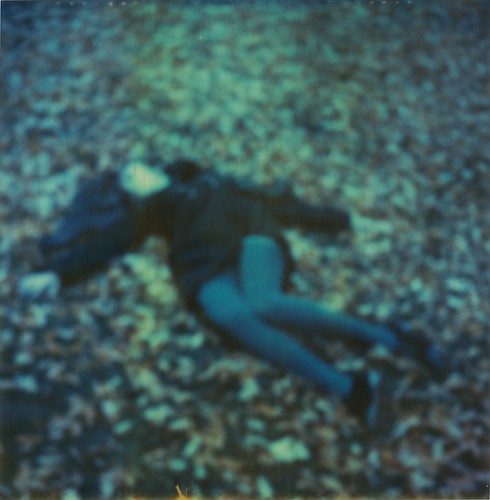MY VISUAL DIARY MENTAL IMAGE IS DEDICATED TO VISUAL CULTURE/CULT IMAGES/FASHION/ CONTEMPORARY ART/MEDIA ARCHAEOLOGY/ART HISTORY/CINEMA/PHOTOGRAPHY.
Wednesday, January 18, 2012
Polaroid Time Zero
Polaroid Time Zero, a set by The Gentleman Amateur on Flickr.
Labels:
Photography
Francis Bacon
Francis Bacon English painter and artist.
Born: October 28, 1909 Dublin, Ireland Died: April 28, 1992 Madrid, Spain
The English artist Francis Bacon was one of the most powerful and original figure painters in the twentieth century. He was particularly noted for the obsessive intensity of his work.
From the 1950s through the end of Bacon's painting career and life in the early 1990s, the consistent theme of his work was the isolation and pain of the individual, with a single figure (usually male) seated or standing in a small, windowless interior, as if confined in a private hell. His subjects were artists, friends, lovers, and even himself. His painting technique consisted of using rags, his hands, and dust along with paint and brush.
Bacon consistently denied that his paintings were used to explain his own life. The facts of his life, however, have tempted art critics and historians to draw links between his personal life and the subject matter of his paintings. One of the great tragedies of his life was the death of his longtime lover George Dyer, who apparently killed himself. Dyer's death occurred just before the opening of Bacon's major retrospective (a collection of the artist's work) in Paris, France, in 1971. Bacon's famous and moving Triptych (1973) was a three-paneled work of his dying friend hunched over a toilet, shadowed in a door frame and vomiting into a sink.
In a period dominated by abstract art, Bacon stood out as one of the few great representatives of the figure-painting tradition. During the last decade of his life major retrospective exhibitions were mounted at such sites as the Marlborough Gallery in New York, New York, in 1984, Moscow, Russia, in 1989, and the Museum of Modern Art in New York City in 1990. Bacon died of heart failure in Madrid, Spain, on April 28, 1992.
The year 1999 saw the release of the book Francis Bacon: A Retrospective, which analyzed the work of the artist. The book coincided with a national tour of many of Bacon's paintings.
Labels:
Francis Bacon,
PAINTING
Subscribe to:
Comments (Atom)































































































































































































































































































































